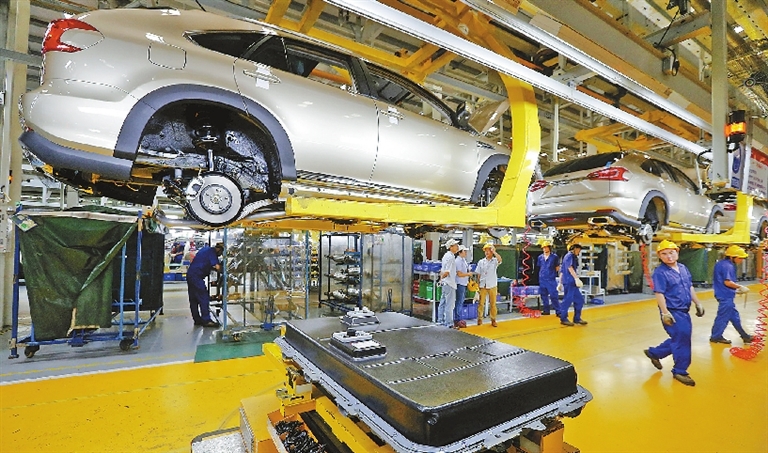
HIS vision to make China an electric vehicle (EV) powerhouse revolutionized the global auto industry, cementing a move away from the combustion engine. Now, Wan Gang says get ready for the next game-changing moment. The world’s biggest car market is set to embrace hydrogen fuel-cell vehicles the way it did EVs, Wan, who’s been called the father of China’s electric car movement, said in a recent interview in Beijing. A former Audi executive who went on to become China’s science and technology minister, Wan convinced policymakers two decades ago to bet on the then-untested technology of vehicle electrification, selling it not only as a way to boost economic growth but also to tackle China’s dependence on oil imports and its pollution. His strategy — using government subsidies to bring carmakers and drivers on board — made China home to one of every two EVs sold globally today. And now it’s hydrogen’s turn, Wan said. “We should look into establishing a hydrogen society,” said Wan, 66, who’s now a vice chairman of China’s national advisory body for policymaking. “We need to move further toward fuel cells.” That means the government will commit resources to developing such vehicles, he said. While China plans to phase out the long-time subsidy program for the maturing EV industry next year, government funding for fuel-cell vehicles may stay in place to some extent, Wan said. Despite the backing of industry giants such as Toyota Motor Corp. and the benefits of fuel-cell vehicles — they refuel faster and are more suitable for driving long distances than all-electric vehicles — the technology hasn’t caught on amid expensive prices. But China has the muscle to change all that should it make hydrogen-powered vehicles a national priority — the type of turning point the industry has been waiting decades for. For Wan — a mechanical engineer trained in Germany — the shift toward hydrogen is a natural step in realizing a vision of having electric cars dominate inner-city traffic, while buses and trucks filled with hydrogen tanks roam the nation’s highways for long-distance travel. The adoption of fuel-cell vehicles has been slow in spite of China having an abundant supply of hydrogen, Wan said. There are only about 1,500 such vehicles in use today, compared with more than 2 million purely electric vehicles, he said. It’s not just China. Hydrogen fuel cells have struggled to gain traction worldwide not just because of high costs — one of the key components is platinum — but also because of the lack of infrastructure and the complexity of storing hydrogen. Then there’s the matter of hydrogen’s flammability, as evidenced by the recent fire at a refueling station in Norway. “We will sort out the factors that have been hindering the development of fuel-cell vehicles,” Wan said. Buses appear to be particularly ripe for fuel cells, which use a chemical process to convert hydrogen into electricity, emitting only water vapor. China is by far the world leader in using electric buses — accounting for 99 percent of them worldwide last year, according to researcher BNEF — but they’re mostly used in cities for short distances. (SD-Agencies) | 
